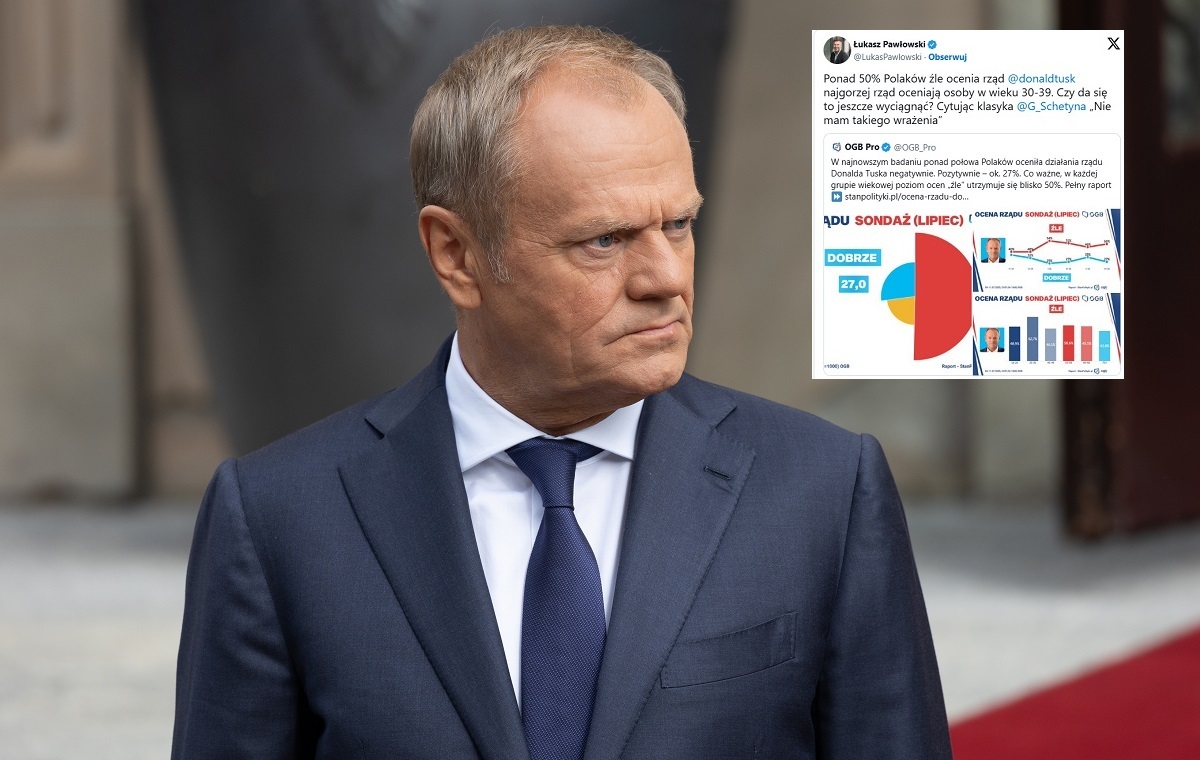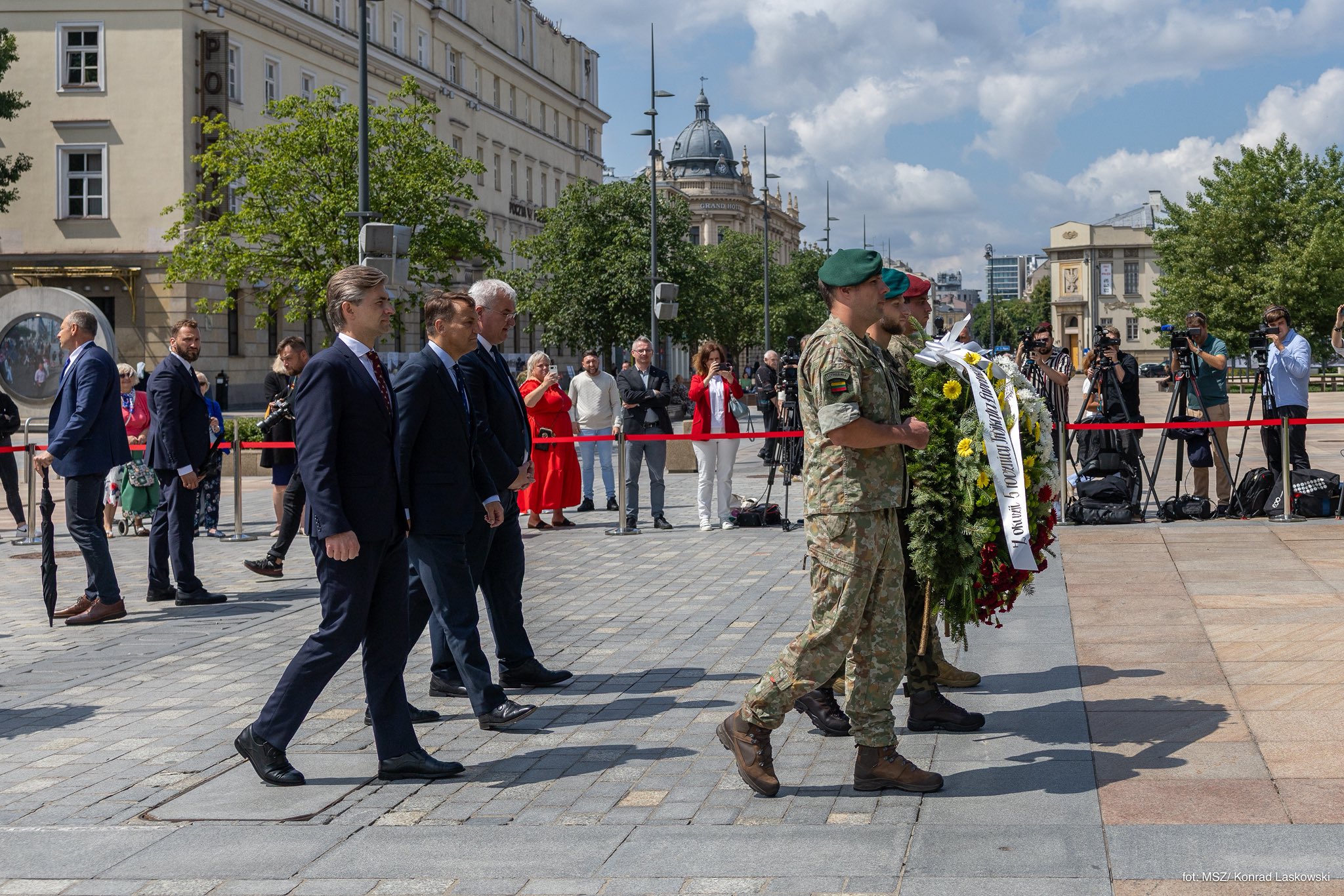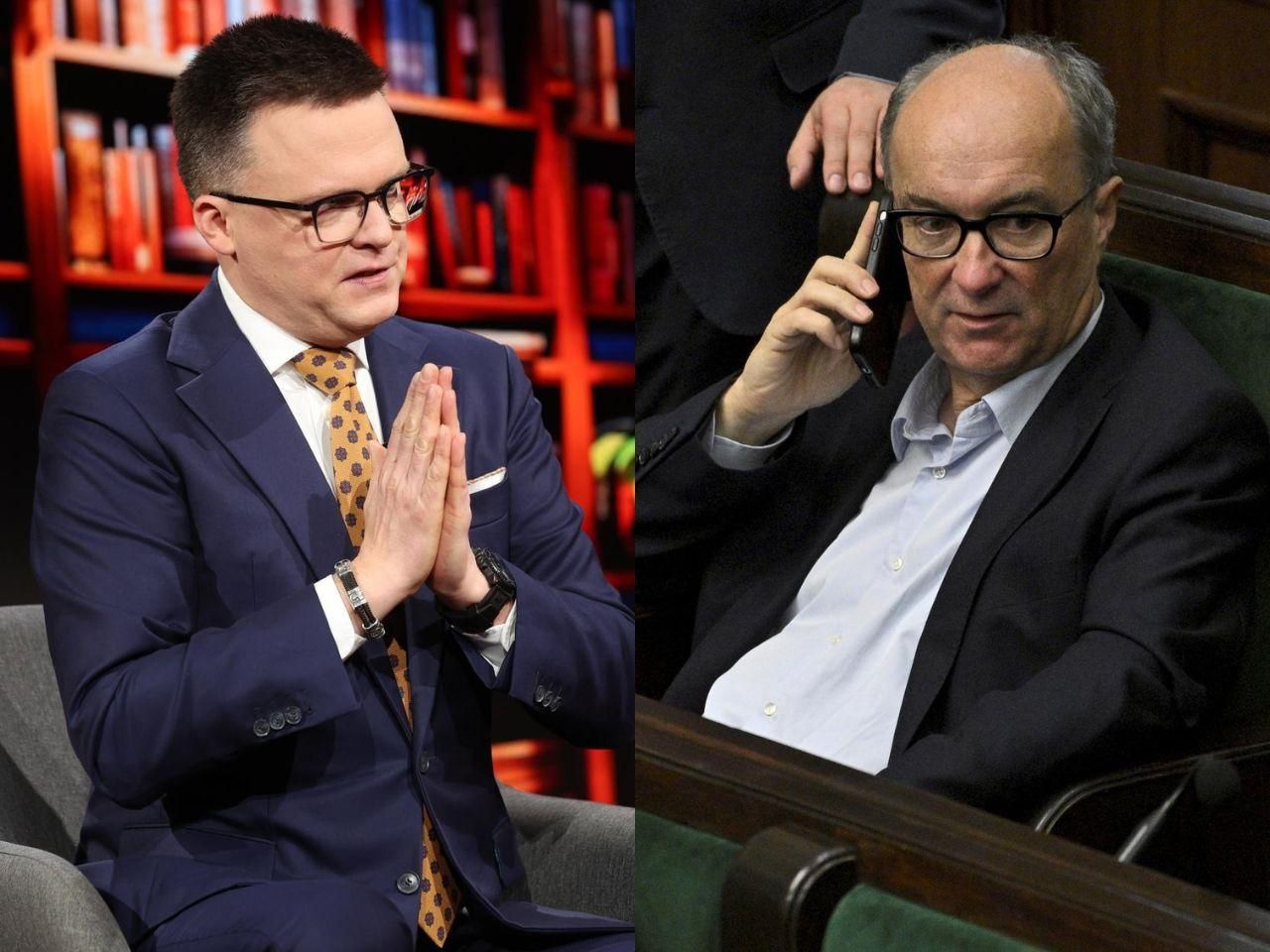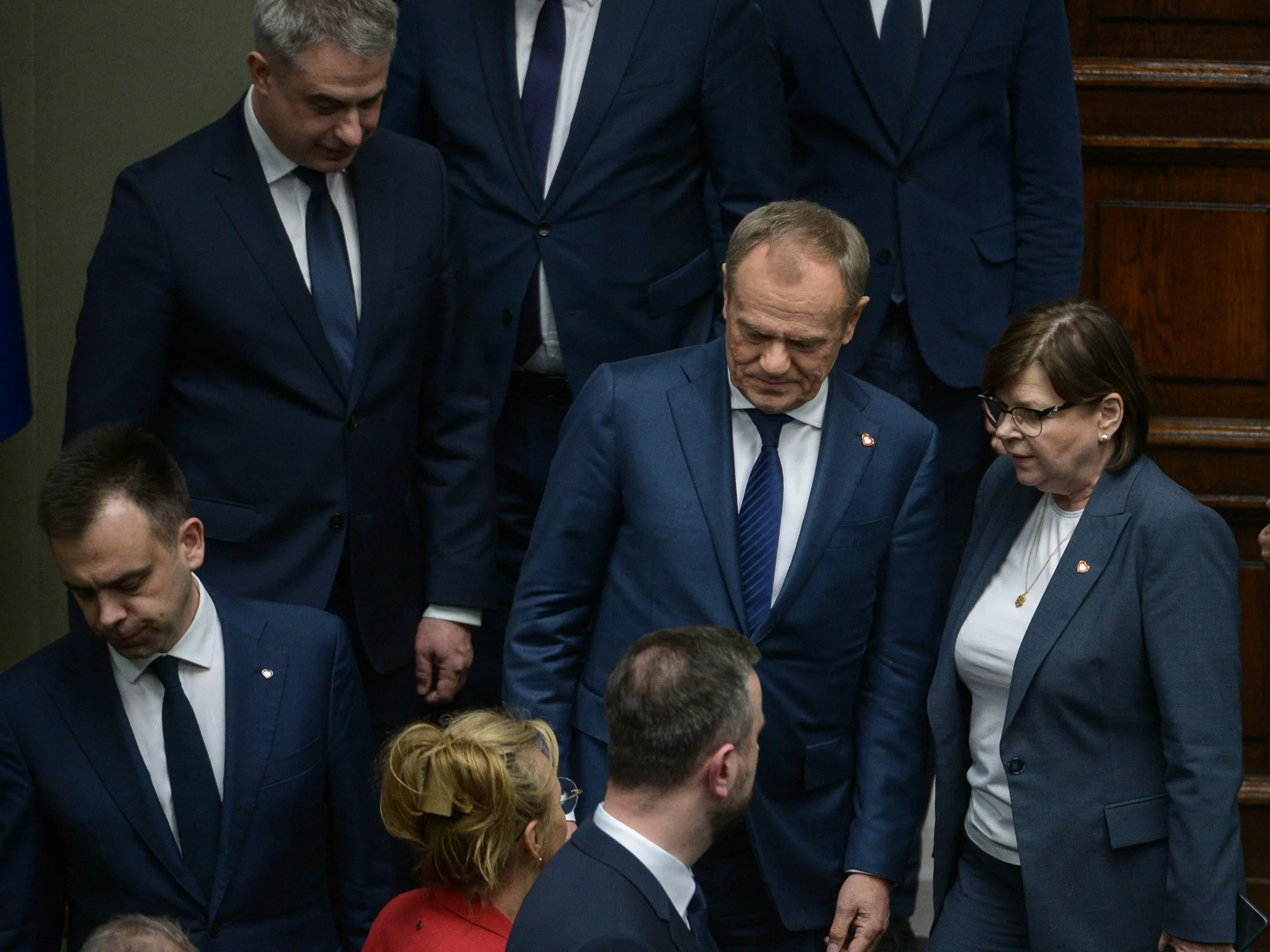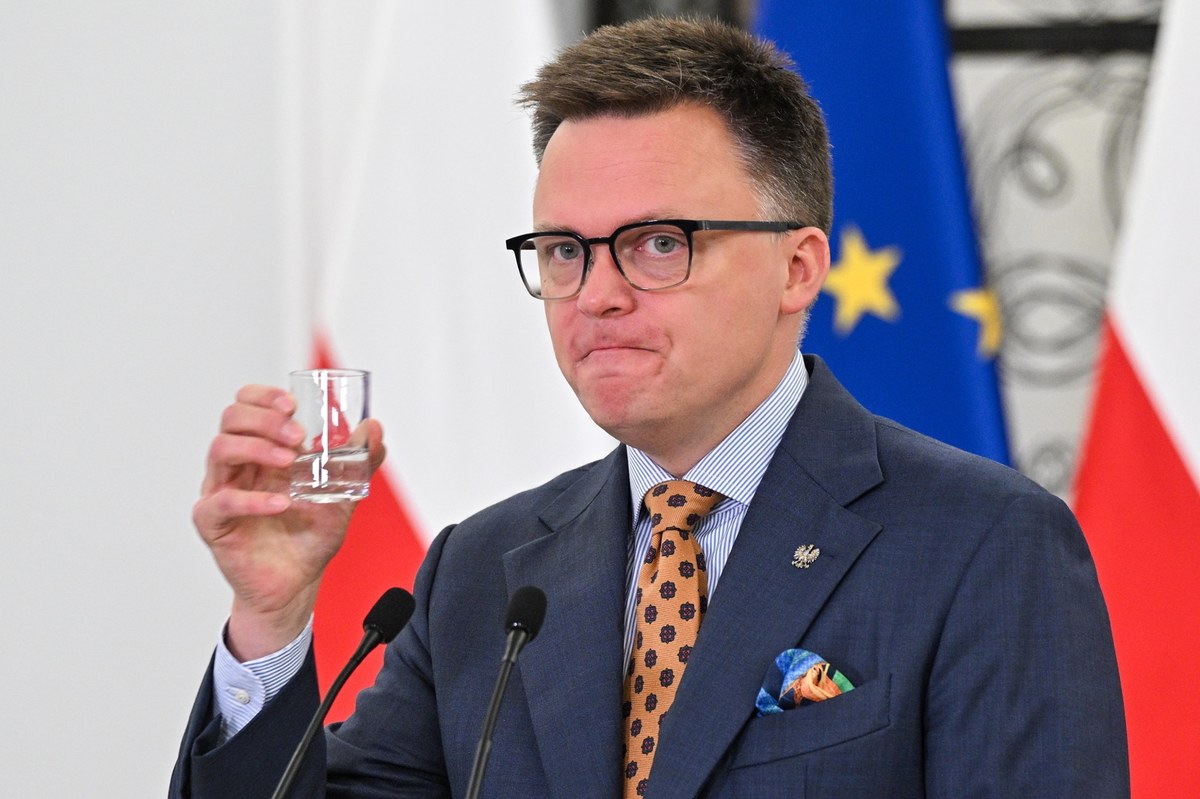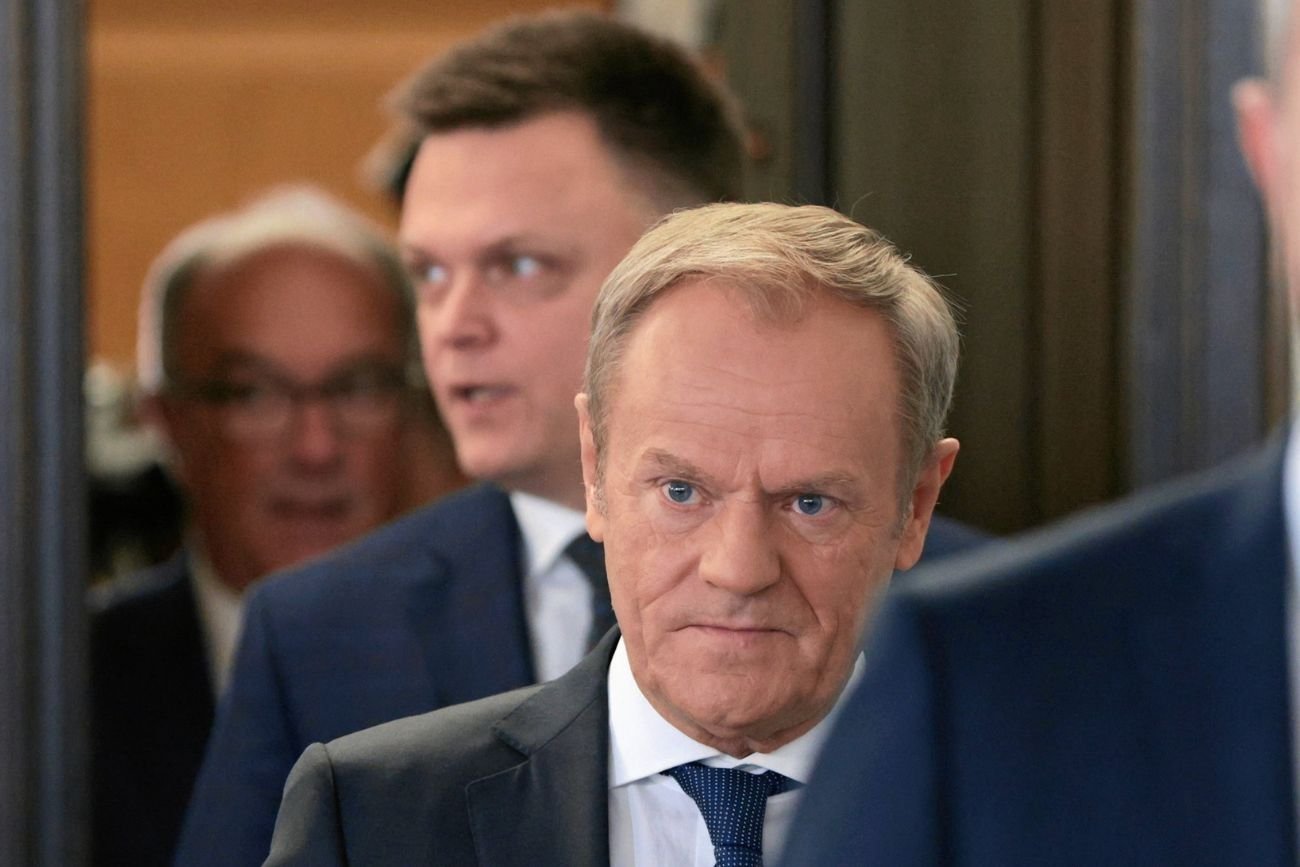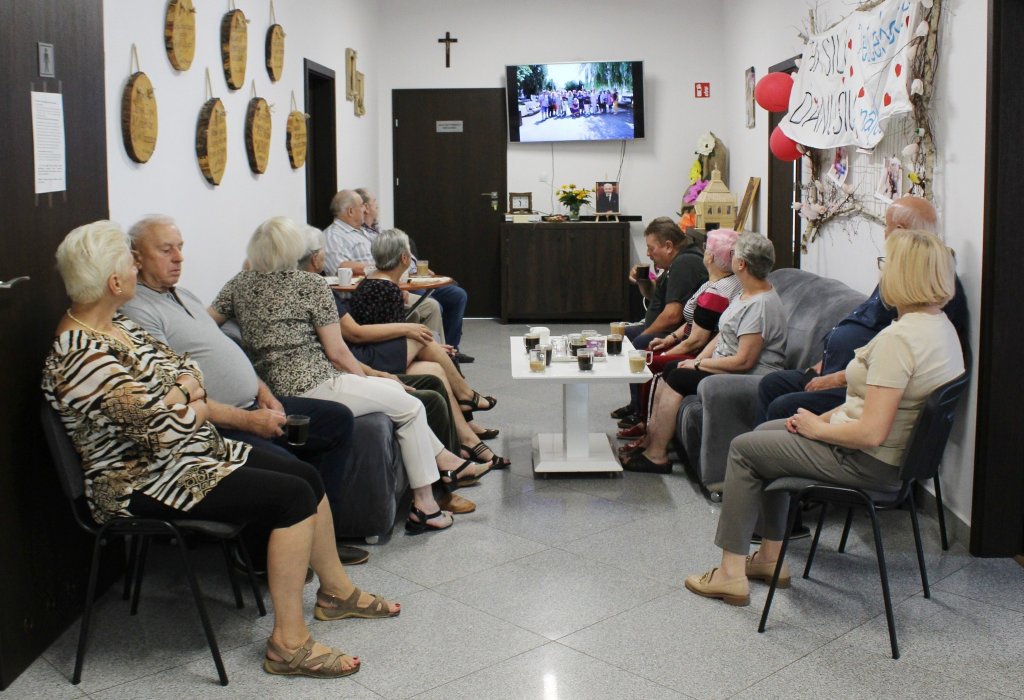Professor Mirosław Karwat, author of the book "About the caricature of politics", discuss what politics are, what its medialisation is, and whether social life without politics is possible.
(Interview is simply a edited and completed version of the podcast Are you aware? p. The caricature of politics. What's behind the mask?).

Mirosław Karwat
Professor of Humanities Sciences, Politologist, Head of the Department of Policy explanation and Political thought of the Faculty of Political Sciences and global Studies of the University of Warsaw. Specialist in politics and sociotechnical theory. associate of the Committee of Political Sciences of the Polish Academy of Sciences. Author of many books on politics, among others: “About the caricature of politics”, “Miernots and figures”, “Art of political manipulation”, “About demagoguery”.
Rafał Górski: Mr. Professor, what is politics?
Prof. Mirosław Karwat: You should start with what it is not, although it seems so. In social awareness, not only common, but besides in the expert community, media commentators or politicians themselves, distorted ideas of politics dominate. It is identified with the sphere of conflict for power and the art of governance – that it is expected to depend on politics, that is where it is expected to start and that is where it ends. This is simply a complete misunderstanding. Here we confuse the mark with the middle, the tool with what it is expected to serve, the form with the content. It is very crucial erstwhile we talk about the difference between politics and pseudopolitics.
So what is the content of politics?
We must bear in head that we call politics a certain sphere of social life or a certain kind of activity, which is part of a certain social relationship. It's not precisely the same thing. Let's start with the first one.
Politics is simply a sphere of social life that is based on differences in needs, interests of different social groups.
We compete for good that is not adequate for everyone or that is indivisible. In this sense it is simply a game of social forces, guided by their own interests, trying to either impose it on others, or agree with the conditions of functioning of the community – the nation, the sovereign state, society.
It is very crucial that this is about business, not the forms of their articulation, due to the fact that interests can be represented differently, not only by political parties. There are trade unions, professional groups associations, spiritual communities and ideological associations. These are all participants in political life, which escapes us erstwhile we restrict politics to the sphere of government, possibly the conflict for power. It is not power (although the rulers willingly think of themselves that the “order of the day” is defined by them) – it does not specify social problems, challenges that it must face. She collides with them, faces the request to resolve certain issues, to meet different expectations, pressures or social demands.
The policy is so besides the social emphasis on the ruling and opposition of various groups and communities to political decisions, a circumstantial governing squad and certain systemic solutions.
In the punch line, I would add 1 more thing. Not everyone who wants their interests to be taken into account needs power. All it takes is the influence others gotta deal with. That is why it is incorrect to imagine that politics is dealt with only by political parties, their members, leaders in particular, top-level officials making state decisions, parliamentarians, diplomats, spies. Well, no, politics is dealt with – although they frequently deny it, due to the fact that politics is an ugly word for them – social activists, activists, local interest advocates, initiators of various social actions.
When I look back on my social activity, I remember that it amazed me first, and then it was comic what I heard from activists of social organizations: “We do not want to engage in politics.”
Yes, politics is treated like a kind of sin, a shy occupation, almost like prostitution. Apoliticalism seems to be a virtue.
The false knowing of that word has even passed into legislation. The highest seriousness is written in the normative acts on the apoliticalness of police and army, which is not true.
The political neutrality of state institutions, which are intended to service all, not just some, is not at all apolitical.
This besides applies to intelligence, counterintelligence or state administration, which is very crucial policy participants.
Who cares about this arrangement? Who benefits and who loses?
Both sides, I think. For politicians, it is incredibly convenient to treat a profession that they practice openly and formally as a kind of privilege. We do not always see it, but frequently politicians are tempted to even throw distant various expectations, demands, embarrassing questions under the pretext that a given group politicizes the matter. It's a convenient kind of gag.
There are besides those who have something to hide or have no self-consciousness, do not realize that they are biased, engaged, and the rations that they present are a choice of ideal, religious, etc.
It is very frequently so that activists of various associations, social organizations, clergymen of different churches convince themselves and society that erstwhile they exert force on legislators, rulers, media, erstwhile they make comments in sermons on certain systemic solutions or on current politics, they do not deal with politics. In his defense, the clergyman will say that he deals only with the religious-moral assessment of man's actions as an imperfect being. This is simply a large camouflage, due to the fact that in fact specified a clergyman acts in the interests of the institution to which he is an officer. It may be based on perfect rations, but it does not change the fact that it obscures the essence of the case.
The Church is simply a associate in politics, especially erstwhile it comes to the division of goods, the issue of taxation, the scope of moral freedom, the question of the world-view neutrality of the state.
So if individual speaks with emphasis on these matters and says that he is not a politician, that is simply a large abuse.
They so adopted in the colloquial language that we call a politician who does it formally – MP, deputy, senator, minister, organization leader, etc. Here we have no doubt, though we should have them, due to the fact that many of these people are engaged in politics formally, but not practically. On the another hand, individual who actually pursues politics, for example within the activities of the trade union, lobbying institutions, employers' associations, entrepreneurs' associations, may not be considered by the public as politics at all, although he is surely not in a formal sense.
What if we tried to change that reality? say you become Prime Minister of the Polish Government. What are you doing to heal Polish politics?
I would first gotta point out that the Prime Minister, even in our system, cabinet-parliamentary, is not a body with the power to completely change the political culture of society or the mentality of its opponents. Contrary to appearances, the effect is limited. But given the mistakes of the current Prime Minister and the coalition government, I have no uncertainty that 1 Prime Minister could do.
Firstly, I would stress communication with the public, that is to say a clear and fair information policy, due to the fact that it is simply a weakness of today's government, even compared to the predecessors who have neglected this issue even more.
In order for Poles to truly know the basis on which they trust someone, support them or refuse them, they must be informed about the plans, intentions, costs of certain solutions, possible another ways of solving the problem. Government without a press release? He's taking points in a fight.
A citizen should have information about who is and who is not curious in circumstantial solutions.
Surely the Prime Minister, who will not neglect specified a necessity, will think about having good press service. In cases where the government is coalition, this is even more necessary, due to the fact that multiple voices, inconsistencies, divergences between partners exposed in media transmission origin social confusion, including in the ellipse of supporters of the government.
In the second point, I would point out a change in the kind and content of communication, due to the fact that a mistake is inactive being made as a consequence of the previously mentioned medialisation of the policy, that the most information citizens receive about personalities, namely vocations, resignations or, as is presently the case, settlement campaigns of predecessors. In the meantime, citizens are most curious in what decisions are being taken on their behalf, i.e. on their earnings, taxes, prospects, pensions or the standard of surviving and what is the outcome.
Therefore, communication between the Prime Minister and his subordinates on the arrangements adopted, on projects or on far-sighted programmes should take place differently, more in substance. In order to improve this process, citizens should be informed of what social needs are, what the government considers to be a precedence and what can wait. Politicians don't like saying that due to the fact that they know they're going to lose out on it. They do not have the courage to say 1 thing: Yes, you will get faster, and others – you get later. Moreover, this balance of needs and the determination of preferences would should be given in a confrontation with the resources available. That's what politicians like to do, but they do it selectively. They admit that there is an urgent social need, but immediately they reserve: the states cannot afford to satisfy it.
Do we remember this celebrated “money is gone and will not”? It should not be that the government or the Prime Minister arbitrarily decide this in democratic political order.
That is why we have public debates, including parliamentary debates, various expert centres with different orientations and sources of information, to verify opinions on available resources.
What is most lacking in the communication between the Prime Minister and the Government and the public is to find in whose interests a decision is made. The rhetoric of ruling politicians all the time refers to the notion of a nation, a society, frequently a public good, a common one, and completely ignores the delicate issue that the implementation of the common good sometimes requires a regulation of the interests of certain groups. There are any flashes. An example of this is the minute erstwhile the public debate seriously began to talk about housing policy – in the context of a dispute related to the slogan, surviving in law, not in goods – and openly to consider for whom a circumstantial solution would be unfavourable. However, specified practices are not yet the norm. Instead, high-profile terms are constantly repeated: security, social peace, social dialogue. This does not lead to information about who has different views and interests with whom.
That is why, among another things, even citizens sympathetic to a given government after any time become convinced that all politicians are an alienated group, ruling in specified a way as to say as small and thus hide something.
It is as if the content of the policy was surprising, to outsmart social groups whose interests could be threatened or underestimated.
So there is simply a deficiency of transparency in an open conversation about the nature of problems, interests, that you gotta make a choice, that you gotta stand for any value at the price of another.
What would you urge to the books and films that would aid you to research the themes that have arisen during our conversation?
I'd start with affirmative patterns. Anyone who wants a antidote for pseudopolitical functioning, I would urge at least 2 films. The first of these – classics, seemingly we could conclude that not about politics – "Twelve angry people", in which we follow the deliberations of the jury, where most, but 1 person, already have a prepared view of prosecution and readiness to conviction the boy to death penalty. It's not even that this 1 has a different view, but alternatively doubts. He's afraid about how easy it is to send individual to the electrical chair. He starts asking questions, a small bit like Socrates, that is, trying to make the others aware of how hastily they draw conclusions. It is simply a large praise of persuasion, dialogue. 1 of my colleagues, a political scientist, wrote an article on this subject, in which he shows that, contrary to appearances, this movie is simply a metaphor of a kind of politics based precisely on dialogue, an effort to realize the way others think, an effort to agree, not to be exclusive or humiliated.
The second specified film, worth watching, is "Invictus – Undefeated", with Morgan Freeman's creation in the function of Nelson Mandela, referring to the authentic event. Many years of apartheid prison, already in the function of president, wonders how to fill ditches of hatred, this gap between the white population and the indigenous population it represents. An chance to unite them, make a sense of common citizenship, pride from the community, is simply a rugby match. Again, seemingly circumstances appear to be apolitical, and we see before us a actual statesman, individual who is not motivated by resentment or a desire for revenge. It turns out that the main character can build a community and focus not only his supporters around him.
On the another hand, I would mention the following: the celebrated series "The Borgia Family", the movie "Conclave", but not the 1 that is presently causing large interest in cinemas, but a movie with a akin title, which was created years ago, with a demasking precision. besides "House of Cards", a iconic tv series depicting perfidia in a frightening style, based on utmost cynicism, a makiawelic kind of politician action in party, parliament and government spheres, making it a timeless track. 1 could besides mention "Nicodem Dysma's career". The title character of this novel, brilliantly screened in the Rybkowski series, served me in my book as a model example to characterize pseudopolitics. Finally, "Mr. Smith is going to Washington" by Frank Capry. Satyr, but perfectly showing on the 1 hand the mechanics of mass mobilisation, on the another hand the collision of certain social ideas with the life of the interior establishment, elites.
I would add that if we want to realize the dangers of politics in times of crisis, the large collapse of certain structures, revolutionary experiments and settlements, then the crucial position is “Danton’s Case”, the drama Stanisława Przybyszewskia, screened by Andrzej Wajad. It shows how a fierce political conflict emerges in terror, and how the revolution devours its own leaders. This is simply a image of politics in this most terrifying edition.
Finally, I would like you to ask 1 crucial question that no 1 has always asked you in the subject we are talking about.
Can we truly be apolitical erstwhile cognition and even common sense tell us that virtually understood politics is an illusion?
It would read as follows: "Is social life possible without politics?".
What would your answer be?
The humanistic visions of the planet oriented towards human values, the perfect formulas of human intercourse with 1 another, are overflowing with the desire for politics to vanish from our lives due to the fact that it involves divisions, and these in turn combine with hostility, aggression, of course with abuse.
Social life without politics could not exist.
We've known this since Aristotle. Never, even in the most democratized and egalitarian community, where people have not only equal opportunities, but their social position is similar, where there is simply a surplus of goods – even in a society where there may be no reason for large conflicts, hatred, attempts to enslave, forced imposition of dominance – differences of interests be and will exist. It's not that we can always accomplish a state where everything is adequate for everyone. Or at which time everyone would get what they needed and what they deserved. It will always exist, especially on economical grounds, the necessity to choose.
I'd like to remind you that your appetite grows as you eat. Marks has already noted that satisfying needs is not a state, but a process, in a paradoxical addition, due to the fact that as we satisfy simple needs, the request for a higher order increases. What pleased us and made us happy erstwhile we had not had it at all before is now the subject of a situation. I mean the endless chain of “a hunger” – in the wake of method progress, at least, the continuous increase in consumption. Why do we buy newer computers, refrigerators, TVs, although most of us don't truly usage these extra gadgets, fresh possibilities anyway?
We're in a consumption race. This is besides a origin that promotes policy continuity.
Perhaps present we realize better than before that it is politics that determines whether we will master human infinite greed, greed, attitude to the environment as actually 1 large prey, prey.
The civilization crisis, which is already unfolding before our eyes, shows what happens erstwhile there is no policy adequately understood, as a skill of substantive, professional definition of the problem and its solution, in the case of growth barriers – self-limitation. Or erstwhile this policy blindly follows a natural race—consumptive or whatever.
Let's put a dot at this point, due to the fact that it's a good point of our conversation. Thank you.


